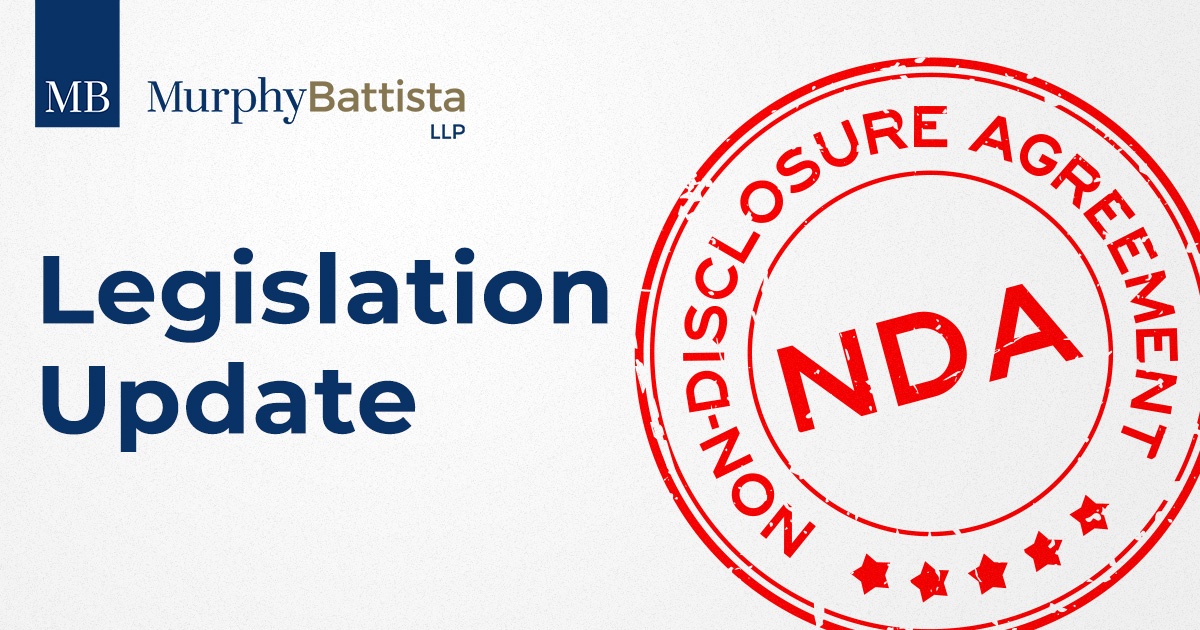
On March 9, 2023, MLA Sonia Furstenau tabled Bill M215 in the British Columbia Legislature — British Columbia’s first proposed legislation directed at ending the unfair use of non-disclosure agreements (NDAs) in discrimination and harassment cases, including cases involving sexual harassment. As my colleague, Janelle O’Connor, has previously written about the future of NDAs in civil sexual assault settlements, similar legislation has already been introduced in other provinces across Canada, including Prince Edward Island.
But what does this legislation really mean for survivors, plaintiff-side counsel, and defence counsel? Does Bill M215 mean that NDAs are off the table in every instance? The answer to this question is no: if Bill M215 is ultimately enacted in British Columbia, NDAs will remain on the table in cases involving discrimination and harassment, including sexual harassment, but the use and content of NDAs will now be restricted.
The NDA must be the expressed wish and preference of the person who experienced discrimination or harassment. Under Bill M215, NDAs involving discrimination or harassment, or allegations of discrimination or harassment, must not be entered into unless “the agreement is the expressed wish and preference” of the person coming forward to call out that discrimination or harassment. Further, before agreeing to an NDA, that person must have a reasonable opportunity to receive independent legal advice about the agreement; there must be no undue attempts to influence that person into entering into the agreement; and the agreement must not adversely affect the health or safety of a third party or the public interest. Notably, Bill M215 provides recognition of both the value and harm of NDAs in discrimination and harassment cases — allowing NDAs to remain a tool for repair and healing, while recognizing that not all NDAs are alike, and further recognizing that some NDAs can indeed be adverse to the public interest, or the health or safety of third parties.
The NDA must include an opportunity for the person coming forward to waive their own confidentiality and must be of a set or limited duration. Another key feature of Bill M215 is the requirement for NDAs in this context to include “an opportunity for the relevant person to waive the relevant person’s own confidentiality”, and a process for waiving that confidentiality. This means that a survivor who agrees to silence now can preserve the option to change their mind about that silence in the future. In addition, Bill M215 provides that all NDAs in cases involving discrimination and harassment must have a clear time frame and end date.
The NDA must be written in plain language. Bill M215 also provides that NDAs “must use language that is clear and understandable to the person who is the relevant person in relation to the discrimination or harassment, or allegations of discrimination or harassment, to which the agreement applies”. This is a simple but essential requirement.
The NDA cannot restrict disclosure to certain professionals and supporters. Under Bill M215, an NDA that prohibits or restricts a person from disclosing information protected or required under the Human Rights Code and other legislation in British Columbia and Canada, or prohibits or restricts a person from communicating about their experience of discrimination or harassment with other support people, is void. This includes communications with lawyers, medical practitioners, nurse practitioners, registered psychologists, registered social workers, community elders and counsellors. This also includes friends, family members and other personal supporters, provided those individuals are specified and approved in the NDA. If enacted, this specific protection will apply to all NDAs, whether or not an NDA was entered into before or after enactment of the legislation.
Artistic expression is expressly protected. An unexpected but positive feature of Bill M215 is a provision specifically addressing “artistic expression” (although that term is not defined), allowing people to engage in artistic expression despite an NDA, provided that expression “does not identify (i) the respondent; or (ii) the terms of the non-disclosure agreement”. Art therapy is well recognized as a helpful tool in recovery for survivors of sexual violence. This welcome addition to Bill M215 would provide greater protection to survivors working through the process of recovery and healing.
The protections under Bill M215 cannot be waived or released. Finally, it is worth noting that the protections provided under Bill M215, if enacted, would apply to all NDAs going forward “despite an agreement to the contrary”. Any waiver, release of rights or protection, or other agreement to the contrary would be void.
It remains to be seen whether Bill M215 will ultimately be enacted in British Columbia, and if it is enacted, what final form the legislation will take. We continue to follow the progress of Bill M215 with particular interest for our clients who are survivors of sexual violence, knowing that Bill M215 is likely to have a positive impact on the rights of survivors if ultimately enacted. You can access a copy of Bill M215 in First Reading here: Bill M215 – 2023: Non-Disclosure Agreements Act.




